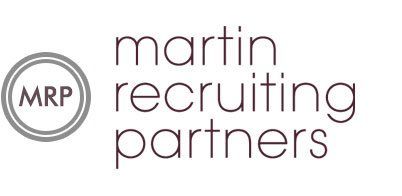The Impact of Company Culture on Employee Retention in Hospitality and Retail

Walk into any thriving restaurant or retail store, and you’ll feel it immediately, a certain energy, a sense of purpose, a team that genuinely seems to care. That’s not just good customer service you’re noticing; it’s the power of a strong company culture. In the fast-paced, people-driven worlds of hospitality and retail, culture is more than a buzzword. It’s the difference between constant turnover and a team that sticks around and performs.
At Martin Recruiting Partners, we’ve worked with countless hospitality and retail brands across the country, and time and again, we’ve seen one clear trend: companies with strong cultures don’t just attract top talent, they keep them.
Why Culture Matters More Than Ever
Both the hospitality and retail industries have notoriously high turnover rates. Long hours, high-pressure environments, and seasonal demands can wear even the most dedicated employees thin. But here's the truth: most employees don’t leave because of the job, they leave because of how the job makes them feel.
A company’s culture sets the tone for how people are treated, how problems are solved, and how growth is supported. It’s the invisible thread that ties together expectations, values, leadership styles, and how the team interacts day-to-day.
If culture is ignored or left to chance, disengagement creeps in. And once that happens, good employees start heading for the door.
What Makes a Culture Worth Staying For?
Let’s get real: ping-pong tables and casual Fridays aren’t culture. They’re perks. True culture goes deeper. The most successful hospitality and retail employers we’ve partnered with focus on a few core things:
1. Respect at Every Level
From line cooks to retail store managers, people want to be treated with dignity. Respect shows up in how feedback is given, how mistakes are handled, and whether leaders listen before they speak. In fast-paced environments, it’s easy to overlook the basics. But those basics are what create psychological safety, and that’s what keeps people from job-hopping.
2. Clear Communication
Nothing frustrates a team more than unclear expectations. In restaurants and retail, where every second counts, communication breakdowns can create chaos. Successful teams operate with clarity about roles, performance standards, and even scheduling.
The best employers don’t just talk at their people. They talk with them. Daily check-ins, open-door policies, and even regular team meetings make a big difference.
3. Opportunities to Grow
In both industries, growth doesn’t always mean climbing a corporate ladder; it could mean learning to run a shift, lead a team, or even move into a new role. When employees feel they have room to learn and evolve, they’re far more likely to stay invested.
Some of the most successful brands we recruit for promote from within. They create learning paths, encourage mentorship, and recognize achievements, small and large.
4. Values That Show Up
If your brand claims to “value teamwork” or “prioritize integrity,” employees will look to see if those claims hold water. Is teamwork rewarded? Are toxic behaviors addressed, or ignored? Does leadership walk the talk?
Culture isn’t what you say in the training manual. It’s what you do when no one’s watching.
The Cost of Getting It Wrong
Let’s not sugarcoat it, high turnover hurts. Every time an employee walks out, you're not just losing a person. You’re losing training time, institutional knowledge, team stability, and often, customer loyalty. In retail and hospitality, where relationships and consistency are everything, that disruption is expensive.
And replacing that employee? It costs time, money, and energy that could be going elsewhere. From recruiting and onboarding to lost productivity, poor retention can bleed resources from every corner of your business.
Culture as a Competitive Edge
The upside? Building a strong culture doesn’t require massive investments. It requires intention.
Even small shifts, like recognizing employee contributions, offering a clear path for development, or simply checking in on staff regularly, can move the needle.
In a competitive labor market, culture is no longer optional. It’s your brand’s most reliable retention strategy. At Martin Recruiting Partners, we work with employers who understand this. When we help place a candidate, we’re not just matching a resume to a job, we’re matching people to environments where they’ll thrive.
We’ve seen firsthand that when culture and recruiting align, turnover drops, morale rises, and performance follows.
Closing Thoughts
If you’re struggling to hold onto good people, it may be time to stop looking at resumes and start looking at your culture. The good news? It’s something you can shape, starting today. And if you need a
recruiting firm to help build a team that believes in your vision, and sticks around to see it through, we’re here for that.
How can I evaluate if my company culture is helping or hurting retention?
Start with honest conversations, ask your employees for feedback. Look at patterns in turnover, and see where communication or support may be lacking.


